Thursday, November 10, 2022
« Je ne vais pas y arriver », « je n’ai pas le niveau », « c’est trop dur »… Quel cavalier n’a jamais eu ces phrases en tête ? La peur de ne pas réussir, de faire des erreurs, de gêner son cheval, de décevoir (les autres ou soi-même)… Voilà des sentiments bien connus de tous les cavaliers. Le manque de confiance en soi est n’est pas rare dans ce sport. Quelles sont les causes de ces doutes ? Pourquoi sont-ils néfastes ? Mais surtout, comment les surmonter ?
To answer these questions, I met Marie Caucanas, clinical psychologist, riding instructor and former show jumping rider on the Pro circuit. She founded her own equestrian mental preparation method, L'ÊtreCavalier. I'd like to thank her for her time 🙏
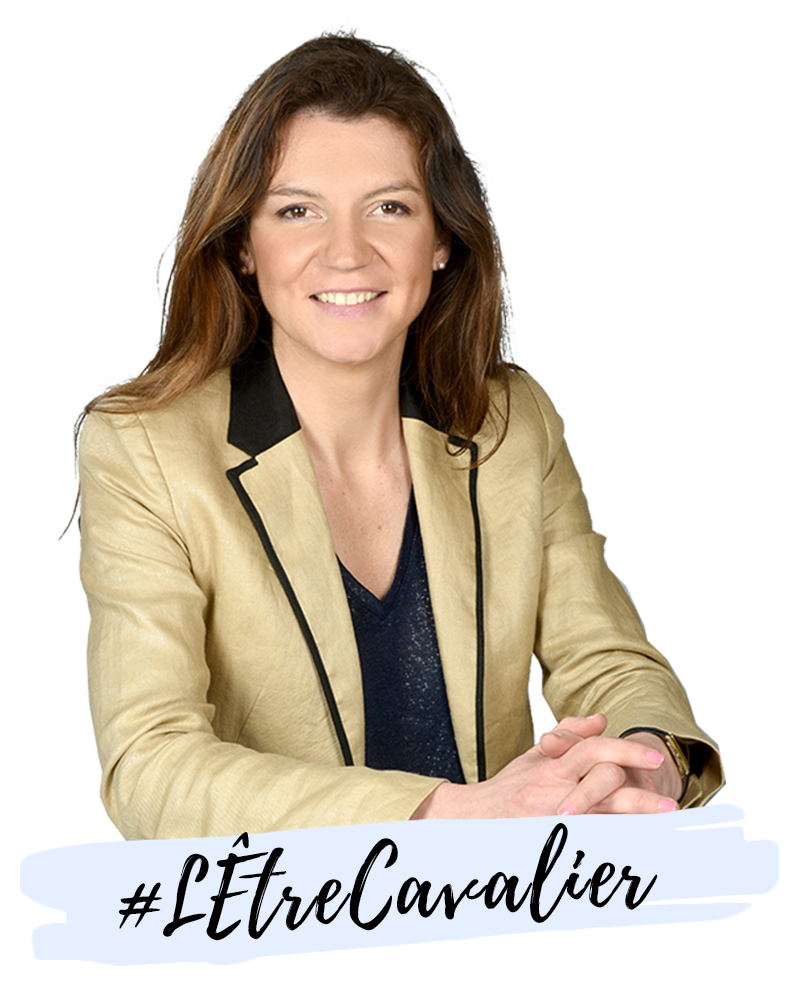
📝 Table of contents
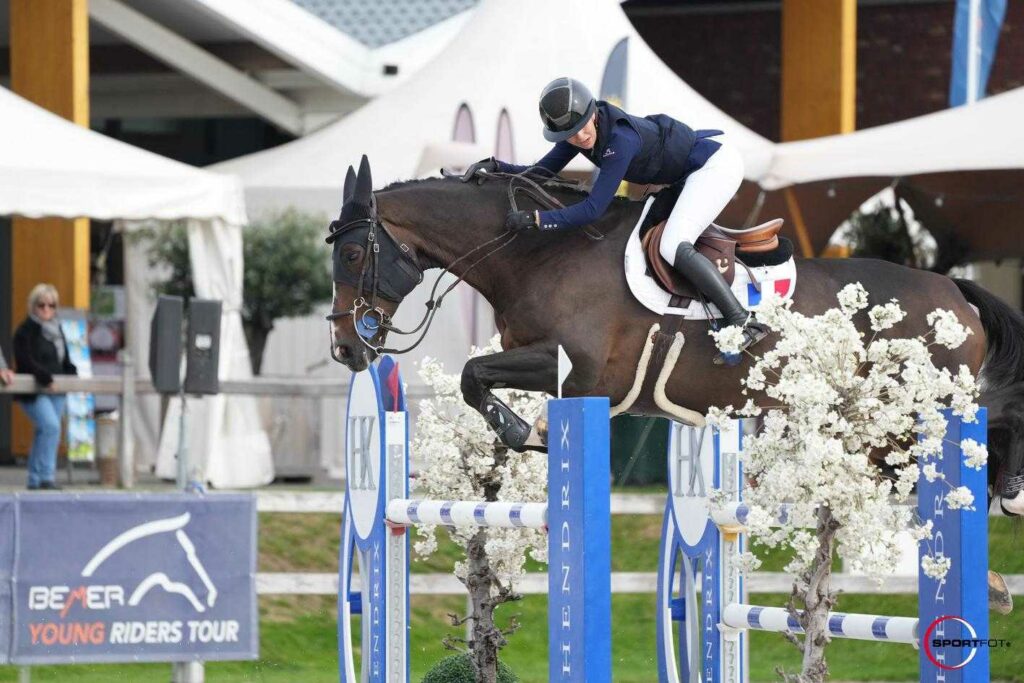
Self-confidence is the rider's of one's own resources and abilities. Quite often, fear on horseback paralyzes us and prevents us from considering our abilities lucidly and objectively. So we think we're not up to the task, we don't feel we're up to scratch... In short, we lose self-confidence.
Self-confidence means being aware of your abilities. Thanks to this awareness, you can put yourself into action.
Marie Caucanas
Marie souligne que le mot « confiance » vient du mot « confier », dans lequel il y a « fier », qui renvoie à la notion de fiabilité. Donc avoir confiance, c’est être convaincu de la fiabilité de l’environnement, d’une situation, d’une personne.
Self-confidence is the reliability of oneself towards oneself.
Marie Caucanas
Marie explains that self-confidence also includes the notion of movement. It allows us to move on to practicepractice into action. Conversely, loss of self-confidence paralyzes us...
Self-confidence is an important concept for the rider.
Marie Caucanas
first and foremost because it enables them, when in action on horseback,
totake the initiative ratherthan be subjected to it.
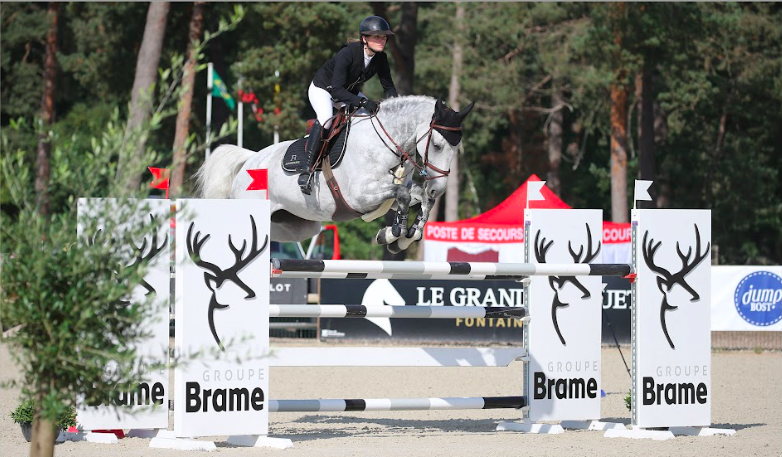
Self-confidence also enables us to adapt This means taking action, but also adapting and regulating it. It's because I have self-confidence that I dare to intervene on my horse, for example by making a clear decision when approaching an obstacle.
This decision-making process is very important for the horse, who needs to be guided. If the rider is absentIf the rider is absent, the horse will be disturbed, waiting for clearer instructions.
As we said earlier, a lack of self-confidence means not being aware of one's abilities. However, by dint of doubting, the brain integrates our fears as realities. Often, it's precisely because we doubt we'll make a bidet refusal... that we make a bidet refusal! This is why lack of confidence necessarily leads to a slower progressor even lack of performance.
Marie explains that lack of self-confidence can be linked first and foremost to internal factorsintrinsic to the person's psychological structure. Let's take the example of a rider who is used to performing well in competitions, and who is generally fairly regular. When he begins to experience a succession of small failures, it's at this point that the rider may start to question himself and his skills. He'll start to doubt himself, particularly in terms of his technical abilities. This leads to a loss of self-confidence.
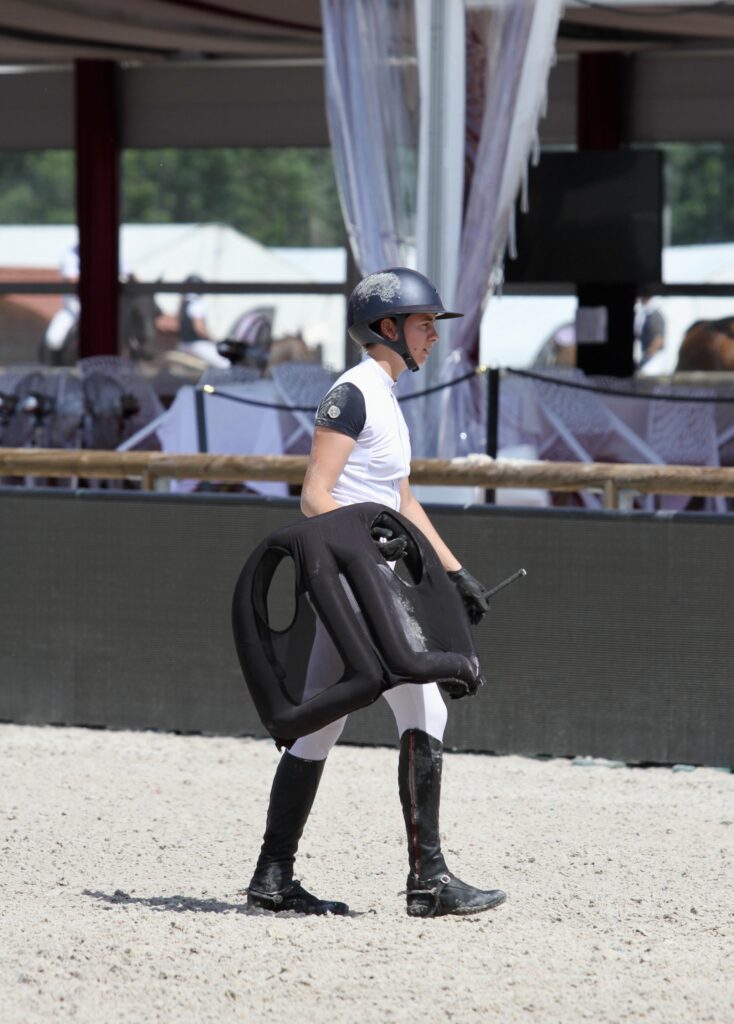
But a lack of self-confidence can also be explained by external factors such as the environment or surroundings - i.e. things that don't affect the person from the inside. If, for example, the people around you constantly point out the negative, this can be detrimental to your self-confidence.
Another external factor that can undermine self-confidence is permeability to the gaze of others. permeability to the gaze of others. If other people's gaze has an impact on us, and we begin to interpret what others think of us, this can affect our self-confidence.
De plus, la confiance en soi se construit souvent à la période de l’enfance, durant laquelle on construit sa « colonne vertébrale psychique » comme le dit Marie. Si l’environnement, qui est censé être protecteur et bienveillant, n’a pas valorisé l’enfant, lui a fait sentir qu’il n’était pas capable, il peut intégrer cette idée en lui.
Finally, if you have negative experiences can have an impact on self-confidence. But in general, self-confidence comes back because you've known it before.
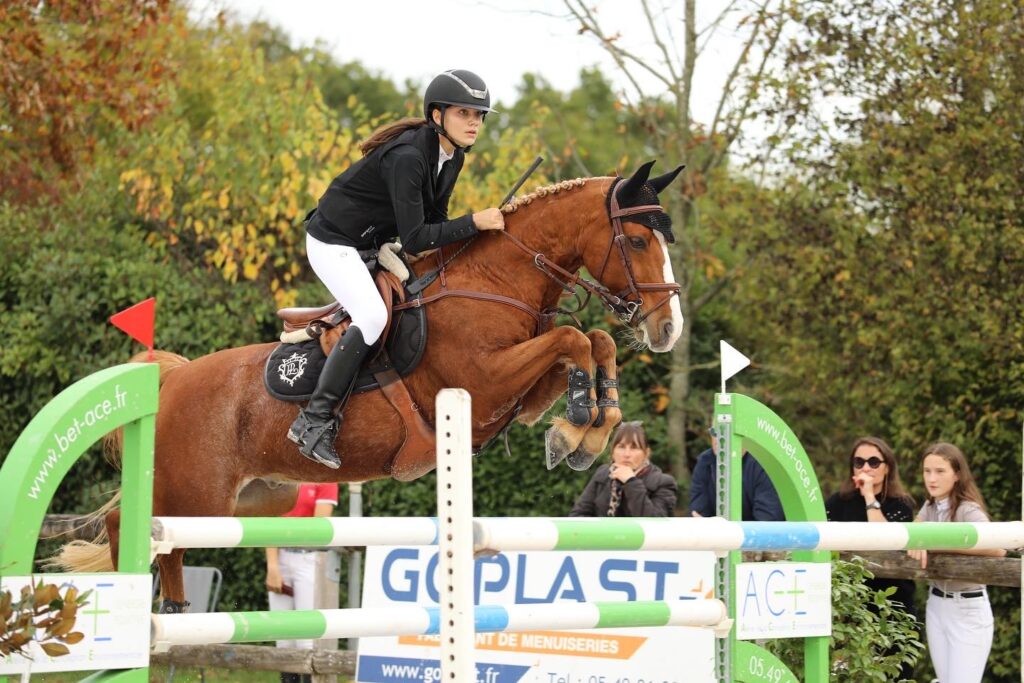
Pour réaffirmer sa confiance en soi et éloigner la peur et les doutes, il faut prendre conscience de ses atouts. Nos ressources sont souvent bien plus nombreuses qu’on le croit ! Pour cela, prenez un papier et un stylo, et faites la listes de tous vos acquis techniques et cognitifs. Techniques, c’est à dire vos compétences purement équestres. Par exemple, « je suis stable sur un obstacle isolé à 80cm » ou « je sais adapter mon équilibre pour ajuster ma distance dans une ligne ». Les acquis cognitifs relèvent quant à eux de votre mental. Cela peut être « je n’abandonne pas même lorsque je suis dans une situation difficile » ou encore « j’arrive à bien respirer tout au long de mon tour ».
We're all capable of doing something.
Marie Caucanas
We need to be aware of this and value it.
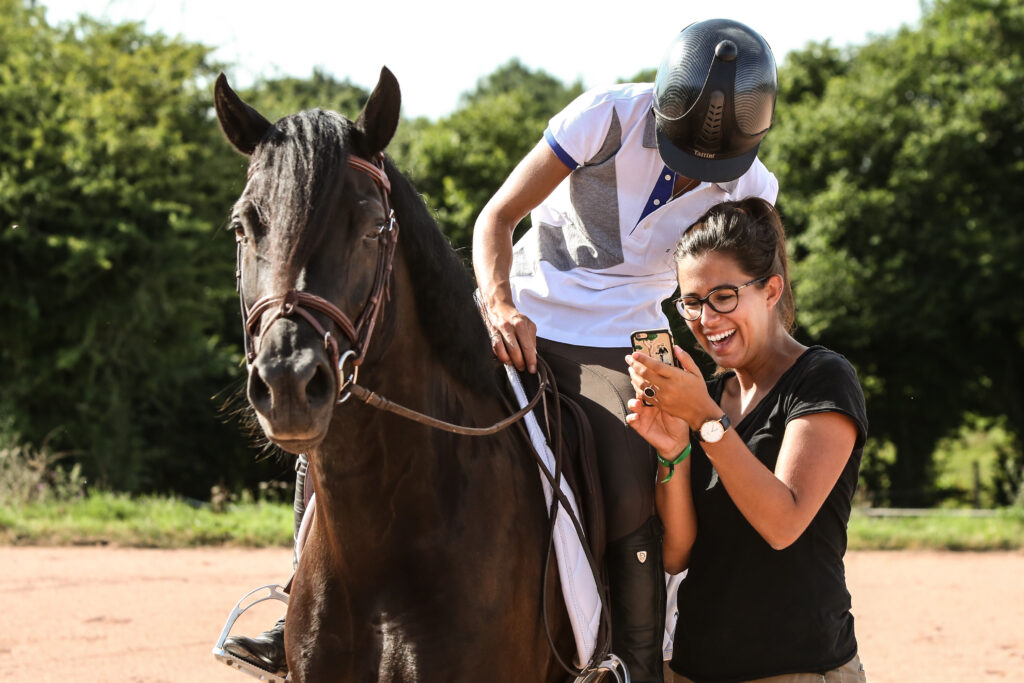
Sometimes, you're so lacking in self-confidence that nothing comes of it and the page remains blank. In this case, the best advice is to get help. Call on your coach who can give you a clear, objective view of your abilities.
Il est pertinent de faire des bilans de compétences régulièrement : ainsi, vous prendrez confiance de vos points forts et constaterez votre capacité à progresser. Marie conseille d’ailleurs de se fixer des objectifs quant on monte. Il faut « fixer des objectifs intermédiaires qui présentent une évolution mais qui sont réalisables. Chaque objectif réalisé et bien exécuté doit être également souligné ». Pour en savoir plus sur ce point, vous pouvez consulter ma vidéo sur la fixation d’objectifs.
Finalement, Marie revient sur le rôle essentiel de l’environnement extérieur dans la valorisation du cavalier : « C’est aussi au coach de faire prendre conscience à son cavalier qu’il a réalisé l’exercice parfaitement, et de ne pas normaliser quelque chose qui est un succès, même un petit succès ».
Marie conseille également d’utiliser le discours interne, qui permet de « nous rappeler nos compétences, nos capacités à faire telle ou telle action. Il faut que ce soit un dialogue interne réel, sur des faits réels. Le fait d’en prendre conscience et de créer ce dialogue interne va (re)créer des circuits au niveau neuronal, qui vont constituer, par la prise de conscience, un nouvel apprentissage de ce que l’on sait faire ».
To do this, you can use positive affirmations. This involves repeating phrases that are kind to yourself. Do this regularly to integrate this positive internal discourse. For example, you can post your positive affirmations where you can read them over every day.
There's no doubt about it: wearing an airbag gives you wings 🚀
« Je pense qu’il y a une grosse part de psychologie. J’ai l’impression de monter mieux avec, parce que j’ai moins peur donc je prends peut-être un peu plus de risques. Donc c’est un avantage sur tous les points ! »
Laura Rozier
For Marie, the airbag acts like a second skin. It acts as a protective envelope, both technically and symbolically. It frees the rider from the fear not only of falling, but also of getting hurt.
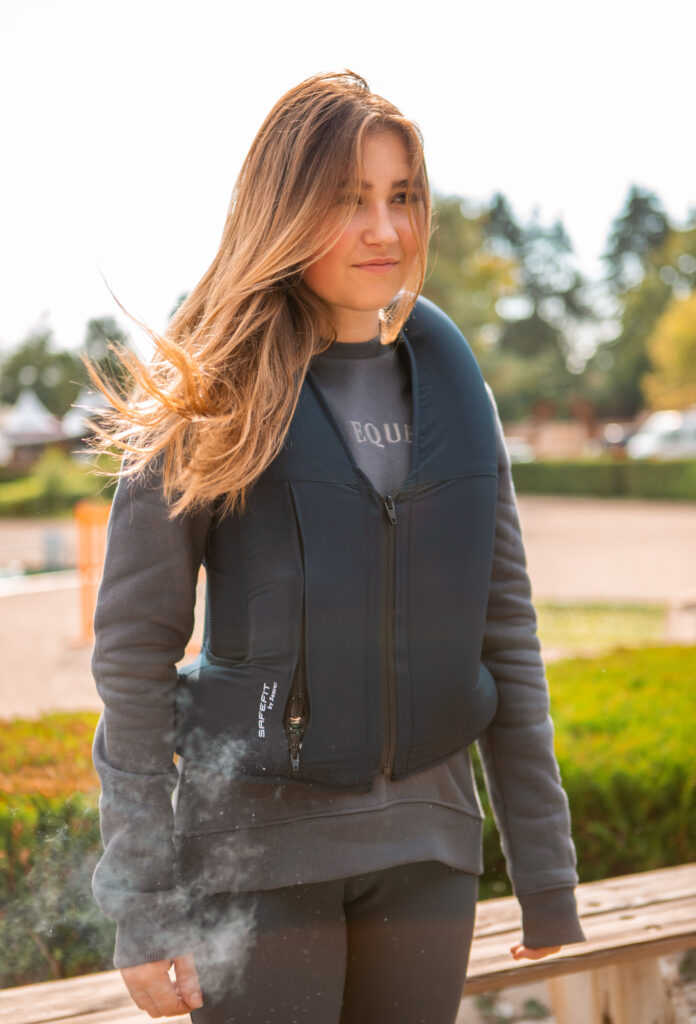
This also frees the rider from psychological upsets, allowing him or her to concentrate technical aspects.
犀利士 yle= »background-color:#e6edff »>The airbag will free your riding,
Marie Caucanas
it'll free up your skills, which you'll be able to put into action.
So you'll feel more confident and ride better.
So, tempted to boost your self-confidence on horseback? ✊

By Chloé Valentin-Granchet
Riding instructor, certified in sports mental preparation
To find out more...
On the rider's mental preparation:
On the mental preparation of athletes in general: